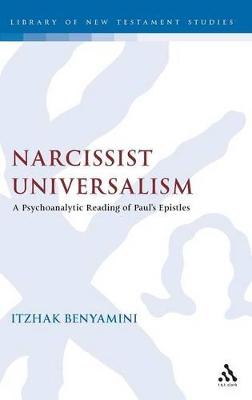In this title, Itzhak Benyamini re-reads Paul's epistles using a critical psychoanalytical approach in light of Jacques Lacan's theory. For several decades, Paul's epistles have been right at the focus of academic and philosophic debate regarding the questions pertaining to Jewish law; love in relation to the law; the linkage between Judaism and Christianity; and, so on. What do Paul's writings consist of that can be used as a key for understanding Western Culture? Itzhak Benyamini seeks to re-read Paul's epistles using a critical psychoanalytical approach in light of Jacques Lacan's theory, in order to find which unconscious core this text provides us with. Benyamini examines Paul's use of Christian ritual and concomitant authoritative evocation of the Biblical tenet Love thy Neighbor, in order to establish a communal Christian identity, separate from 'carnal' Judaism and idolatry alike. According to Benyamini, Paul has founded a narcissist community of sons who place the Son at the centre of their existence. Consequently, the Christian Imaginary is juxtaposed as an alternative to pagan-carnal pleasure - but also as alternative to Judaic law.
Formerly the Journal for the Study of the New Testament Supplement, a book series that explores the many aspects of New Testament study including historical perspectives, social-scientific and literary theory, and theological, cultural and contextual approaches. The Early Christianity in Context series, a part of JSNTS, examines the birth and development of early Christianity up to the end of the third century CE. The series places Christianity in its social, cultural, political and economic context. European Seminar on Christian Origins and Journal for the Study of the Historical Jesus Supplement are also part of JSNTS.
- ISBN10 056722614X
- ISBN13 9780567226143
- Publish Date 5 July 2012 (first published 1 January 2012)
- Publish Status Active
- Publish Country GB
- Publisher Bloomsbury Publishing PLC
- Imprint T.& T.Clark Ltd
- Format Hardcover
- Pages 144
- Language English
